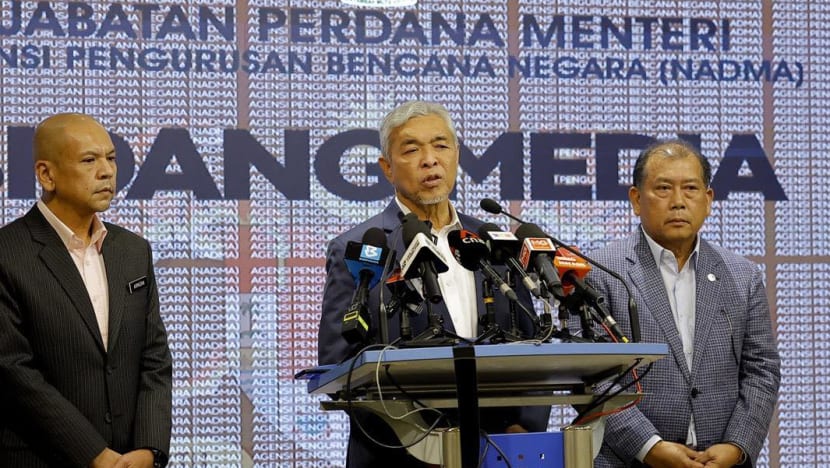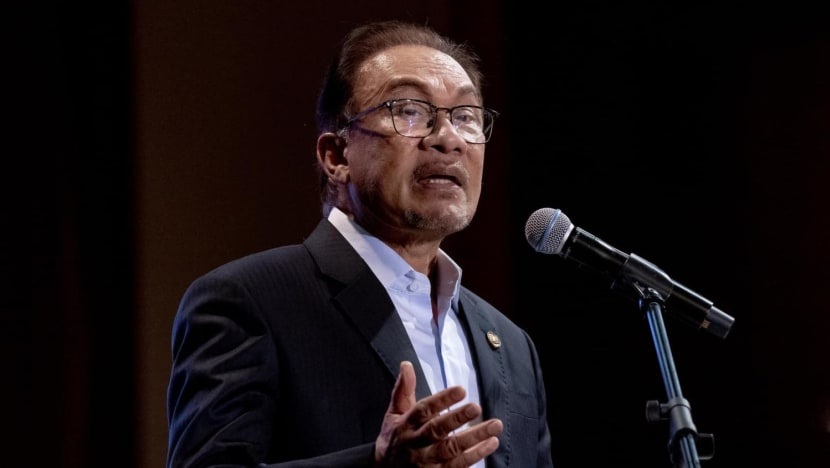analysis Asia
PH-UMNO ties strained by Ahmad Zahid’s picks for top government agencies posts

KUALA LUMPUR: Malaysia’s Deputy Prime Minister Ahmad Zahid Hamidi appears to be flexing his muscles within the unity government as well as his United Malays National Organisation (UMNO) party, and such moves are straining ties in the ruling coalition led by Mr Anwar Ibrahim.
Shortly after purging most of his rivals from UMNO’s top leadership at the party elections earlier this month, Ahmad Zahid has quickly moved to reward his allies with appointments to the party’s powerful policy-making supreme council and several government agencies under his Rural and Regional Development Ministry.
Among the new heads of government agencies include party secretary-general Asyraf Wajdi Dusuki, who now chairs the Majlis Amanah Rakyat (MARA). Additionally, UMNO's women wing chief Noraini Ahmad has reportedly been picked as the new chairperson of the Rubber Industry Smallholders Development Authority (RISDA).
While Ahmad’s Zahid management of UMNO is an internal party matter, the appointments to state agencies run counter to pledges the Pakatan Harapan (PH)-led coalition government made during the November polls. Among other promises, PH had said that it would do away with the policy of previous administrations to reward senior politicians with positions in government agencies.
Ahmad Zahid's actions have not only become a lightning rod for the opposition leaders, who are accusing Mr Anwar of backsliding on his election promises to bring about reforms in return for ensuring UMNO’s continued support for the coalition government.
They are also fuelling unease among senior PH leaders, who have long been wary about Mr Anwar’s move to strike a partnership with Ahmad Zahid and UMNO, sources told CNA.
“Making a deal with (Ahmad) Zahid and UMNO was always going to be problematic and that is now playing out,” said a senior PH minister, who also added that the issues over the appointments were being unfairly amplified because Ahmad Zahid was exercising his authority as minister over appointments involving agencies under his ministry.
“The problem with UMNO is that it believes it is business as usual even as a minority partner (in government) and Anwar’s challenge is to make sure that he draws the line when it comes to GLCs,” said the PH politician. Under previous administrations, UMNO officials were appointed to boards, such as power company Tenaga Nasional Bhd and its subsidiaries.
The current uneasiness over how Ahmad Zahid has positioned his allies in government agencies reflects the messy state of Malaysia’s coalition politics following the 15th General Election.
The Anwar-led PH coalition, a group of multi-racial parties with a large ethnic Malay majority base, emerged with the highest number of seats in the 222-member Lower House. But it only secured a majority to form a government after UMNO and its allies spurned overtures from the opposing coalition known as Perikatan Nasional (PN) led by former premier Muhyiddin Yassin.
In recent days, Ahmad Zahid has come out to defend the public sector appointments of senior UMNO officials, stressing that only those with the right skills were picked.
He cited the appointment of Mr Asyraf Wajdi, a politician with experience in Islamic banking, who was appointed as MARA chairman. MARA was established in 1966, first to help train the country’s majority Malays and other indigenous groups in areas of business and industry but has since become a huge investment corporation."It is a waste to have such experience and credentials, but we do not use it to develop MARA together,” he told reporters this week, adding that the appointments were made according to guidelines set by the government.

Mr Anwar’s unity government comprising the PH, UMNO, a powerful block from Sabah and Sarawak on Borneo, together with a clutch of the smaller political parties is under no threat. But Malaysia's political waters remain unsettled because of the deep divisions in the allegiances of the country’s ethnic Malays, who make up more than 60 per cent of the country’s 33.6 million population.
The bulk of the Malay vote went in favour of the PN coalition, comprising Parti Pribumi Bersatu Malaysia (Bersatu) and the Parti Islam Se-Malaysia (PAS), two purely Malay political entities.
According to close aides of Mr Anwar, he believes that the only way he will be able to consolidate his position as premier is by demonstrating that his government is succeeding in winning over the Malay vote. That big test will come in the upcoming regional elections in six state assemblies that will be held sometime in June or July.
The states that will come into play are the ethnically mixed Penang, Selangor and Negeri Sembilan, all legislatures currently controlled by the PH coalition and are expected to remain that way. The serious challenges are in Terengganu, Kelantan and Kedah, all dominantly Malay, rural and controlled by the right-wing PAS.
It is in these states, which lag behind economically and suffer from poor infrastructure, that Mr Anwar is hoping for Ahmad Zahid and UMNO to make a difference through the Rural and Regional Development Ministry ahead of the elections.
The ministry is one of the largest recipients of annual government funding and is widely regarded one of the most important portfolios because of its responsibility over the development of the country’s politically dominant ethnic Malay community.
The stakes are high for both Anwar and Ahmad Zahid on how the ruling coalition performs in the Malay-belt states.
Should UMNO show no improvement in the support from the Malays, the outcome would be considered a rejection of UMNO and Ahmad Zahid, who is battling corruption charges in court. The prime minister, too, will have to account to his supporters for being too accommodating to UMNO.
















